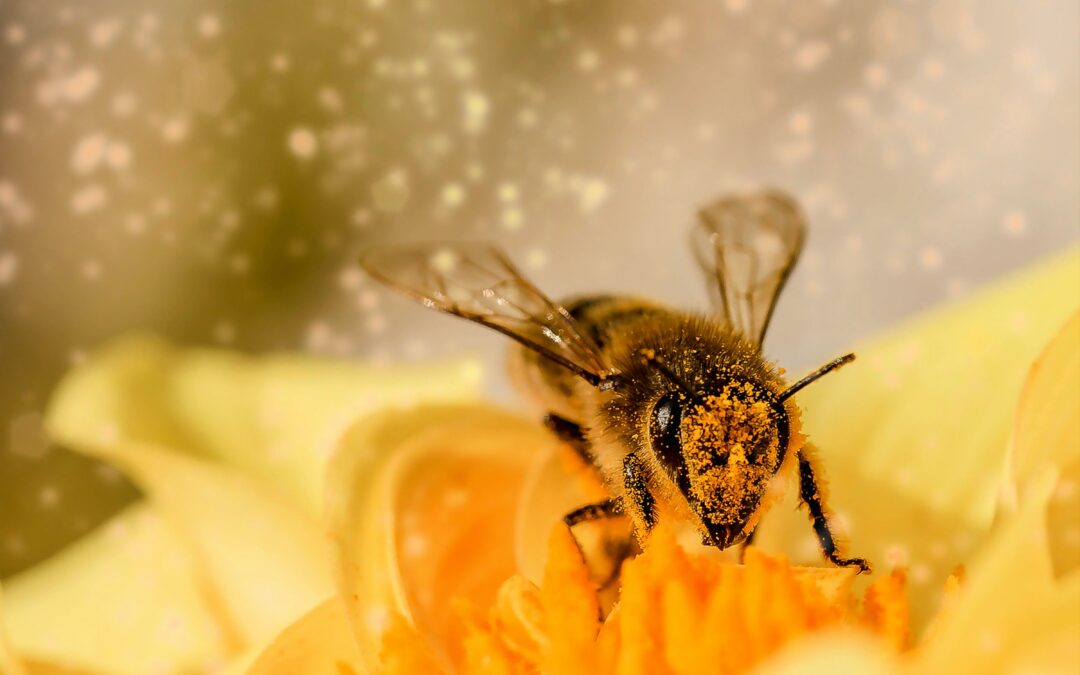Despite their small size, bees play a huge role in the environment. Without protecting them from pesticides, their population will collapse, which means many other delicate ecosystems will suffer as a result.
Bees are prolific pollinators.
Bees are primary pollinators for a wide variety of flowering plants, including fruits, vegetables, nuts, and wildflowers. As bees collect nectar from flowers, pollen grains stick to their bodies and are transferred from one flower to another, facilitating cross-pollination. This process is vital for plant reproduction, as it allows plants to produce seeds, fruits, and new generations of plants. Approximately 75% of the world’s flowering plants rely on pollinators like bees.
The bee population impacts plants AND animals.
Bees contribute to maintaining biodiversity by facilitating the reproduction of diverse plant and animal species. When plants are successfully pollinated, they can produce a variety of fruits, seeds, and other plant structures, which are essential food sources for numerous animals in the ecosystem.
Bees are immensely important to the world’s agriculture and food production.
Bees contribute to the production of a significant portion of the world’s food supply. Many crops, including fruits, vegetables, nuts, and oilseeds, depend on bees for pollination. Without bees, the yields and quality of these crops would significantly decline, affecting food availability and diversity.
Our ecosystems depend on bees.
The presence of bees in an ecosystem is an indicator of its overall health. Bees are part of a complex web of interactions among plants, animals, and other organisms. Their activities promote the growth and reproduction of various plant species, which, in turn, provide habitat and food sources for other organisms. By supporting plant diversity, bees contribute to the stability and resilience of the world’s ecosystems.
Bees benefit other wildlife.
Bees indirectly support other wildlife by providing habitat and food sources. Many bees create nests in hollow stems, fallen trees, or underground tunnels, offering shelter to other insects and small animals. Additionally, bees serve as a food source for birds, mammals, and other predators.
Bees also help our other conservation efforts.
Bees are essential for the conservation of natural habitats. As they move from flower to flower, bees aid in the dispersal of seeds, promoting the growth of plants and the restoration of degraded areas. By ensuring the reproduction and survival of diverse plant species, bees contribute to the overall health and balance of ecosystems.
It’s important to recognize the significant role that bees play in maintaining the delicate balance of ecosystems and the interconnectedness of species. Protecting bee populations and promoting their well-being is crucial for the preservation of biodiversity, food security, and a sustainable environment.



